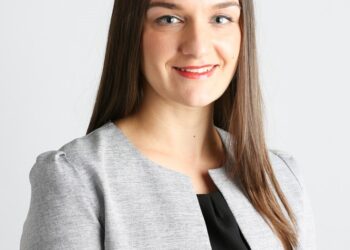SuperConcepts executive manager, SMSF technical and private wealth, Graeme Colley warned that the number one issue for SMSFs with rental properties is often poor and inadequate record keeping.
“It impacts at all levels ranging from the day-to-day operation of the fund, preparing accounts, auditing the fund, and being investigated by the regulators,” Mr Colley said in an online article.
“Poor record keeping delays completing the fund accounts, may make the fund more difficult to audit, and increases the risk of the fund breaching the superannuation and tax laws.”
If the SMSF is unable to produce evidence of the fund’s trust deed, governing rules, income, expenses, investments, agreements and other legal documents, this can lead to delays in fund administration and completing fund accounts, Mr Colley said.
“Trustees may end up being frustrated because they are contacted continually for receipts and other documents to support investment decisions as well as income and expense details,” he said.
“It may turn out that the documents may not exist, are lost or have been destroyed. This could result in the auditor reporting a contravention of the superannuation standards or disallowance of income tax claims.”
Keeping complete records or transactions that have taken place in the 2019–20 and 2020–21 financial years, Mr Colley explained, will be “more important than ever because of COVID-19”.
“Trustees may have provided tenants with concessions or been granted deferrals or waivers by banks and other parties,” he said.
Mr Colley said there are some other common tax mistakes to be mindful of, such as the SMSF trustee claiming travel to a residential property which has not been permitted since 1 July 2017.
“However, it is possible to claim the cost of travelling to a commercial property owned by the fund to collect rents, undertake repairs and other matters, such as meeting with tenants or letting agents,” he noted.
The ATO makes it clear on its website and in Law Companion Ruling 2018/7 that the reimbursement of expenses is limited only to activities related to the SMSF, Mr Colley said.
“If the travel expense also includes a personal or private component, the fund should not reimburse a trustee or member for that portion of the expense,” he explained.
Tax deductions for capital works costs are another area where mistakes can occur, he said.
“All rental properties owned by an SMSF may be eligible for a tax deduction for capital works costs. These costs are spread over a number of years and include expenses to get the property ready to rent. However, trustees commonly claim the total cost of the capital works in the tax year the expenses are incurred, which is incorrect,” he said.
While it is possible for an SMSF to claim an immediate deduction for repairs or maintenance costs which restore items that are broken, damaged or deteriorating in a property that is currently being rented, these expenses need to be distinguished from improvements or renovations to the property.
“[Improvements or renovations] are treated as capital improvements and are deductible over a number of years,” he said.
“Any initial repair costs for damages that existed at the time the property was purchased can’t be claimed as an immediate deduction. However, it may be possible to claim them over a number of years as a capital works deduction.”
Mr Colley also warned that some trustees with properties available for short-term rentals may be tempted to let members, friends or relatives stay in the property.
“Renting a residential property to a member, trustee or their relatives may result in the value of the property being included in the fund’s in-house assets,” he cautioned.
“As the value of the property is usually greater than 5 per cent of the value of the fund’s total assets, it is likely there will be a breach that could result in a financial penalty being imposed on the trustee. In the case of repeated breaches, the trustee may be disqualified, or the fund may be taxed as a non-complying fund.”
If a holiday house is rented to related parties and their friends at a substantially discounted rate, or at no cost, Mr Colley warned there is a danger that the income of the fund could be taxed as non-arm’s length income due to the non-commercial nature of the arrangement.
“Recent amendments to the income tax law, which were backdated to 1 July 2018, now take into consideration expenses of such transactions which are non-commercial. This can impact on the income received as well as any capital gains when the property is sold,” he said.


